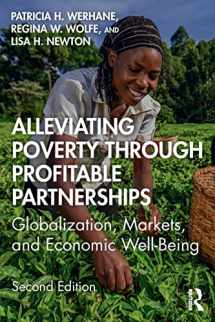
Alleviating Poverty Through Profitable Partnerships
Book details
Summary
Description
Poverty is an unnecessary form of human degradation and badly conceived economics. Our thesis is that poverty can be reduced, if not eradicated, both locally and globally. But this will occur only if we change our shared narratives about global free enterprise, remind ourselves that poverty is a system, and conceive of poverty alleviation as a "bottom-up" project. There is no "one size fits all" for poverty reduction. Rather, poverty is a system and must be addressed locally. It is our aim, as it is the aim of the United Nations, the World Bank, and many other organizations, to erase it from our vocabulary and from this planet.
With a series of case studies that accompany each chapter, this book should assist readers in thinking about poverty alleviation from a number of perspectives, from bottom-up entrepreneurial projects, local-corporate ventures, with public–private partnerships, from focused philanthropy, with education and health care initiatives, and agriculture reforms in rural communities, all with the aim of creating a win-win result for local and partnership individuals, organizations, and communities.
The book should be useful in various undergraduate and graduate courses on ethics, applied ethics, developing economic systems, and poverty.


We would LOVE it if you could help us and other readers by reviewing the book
Book review



